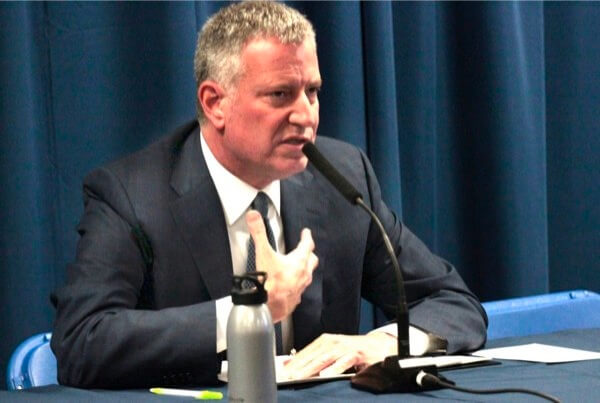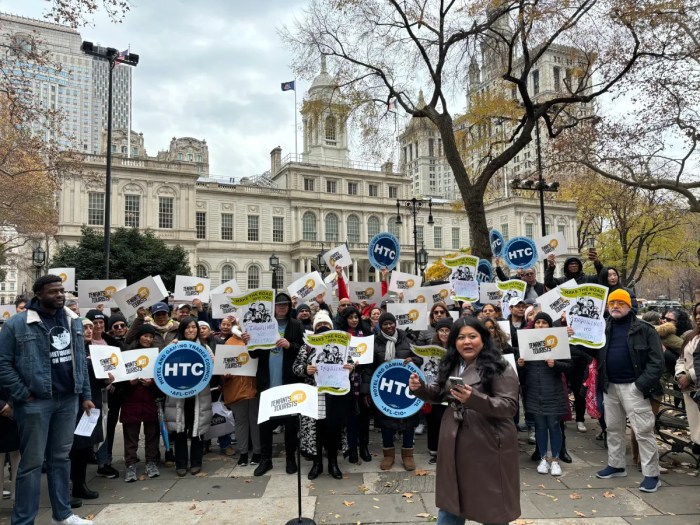By Bill Parry
The city rolled out its first-ever plan to meet the goals of the Paris climate agreement according to Mayor Bill de Blasio announced last week., The Mayor had signed an executive order to adopt and commit the city to the principles of the global agreement shortly after President Trump’s Rose Garden speech in September announcing plans to withdraw from the 2015 agreement.
The new plan lists actions the city will take in the next three years to accelerate greenhouse gas reductions and put the city on a path to significant de-carbonization.
This is the first Paris Agreement-compliant plan from any city in the world, according to City Hall.
“Big problems require big solutions — and New Yorkers are already hard at work to meet the most ambitious goals of the Paris Agreement,” de Blasio said. “In the Trump era, cities have to lead the way when it comes to fighting climate change. Hotter summers and powerful storms made worse by climate change are an existential threat to a coastal city like ours, which is why we need to act now.”
The Mayor’s Office of Sustainability identified actions city agencies must take within the next three years on issues such as recycling, energy consumption, transportation, waste management, buildings and carbon neutrality. The city has already made strides in certain areas, for example, the NYC 2016 Green House Gas inventory shows a reduction of 15 percent compared to the 2005 baseline, officials said.
“Climate change poses major public health risks to New Yorkers — both now and in the future,” Health Commissioner Dr. Mary T. Bassett said. “The adverse health effects from building and traffic pollution are preventable, and the city’s commitment to the Paris Agreement goal will reduce levels of harmful air pollutants across the city through building energy performance initiatives and sustainable transportation options.
On transportation alone, the city will continue the accelerated pace of Select Bus implementation, fight for a tax on millionaires to modernize the subway system, and double the number of active cyclists by 2020 through the annual development of at least 50 new miles of bike lane network.
“Thanks to our reliance on public transportation, walking and cycling, New York City produces the fewest greenhouse gas emissions per capita of any U.S. city,” Transportation Commissioner Polly Trottenberg said. “But we can always do more, and Mayor de Blasio’s refined climate plan brings us in line with the Paris climate accord by expanding sustainable travel choices — including through electric vehicles, which will boost our efforts to curb fossil fuels. Given New York City’s status as a leader among world cities, the smart choices we make now about transportation will not only help make New York a safer and more equitable city, they can make a real difference in combating global climate change.”
Reach reporter Bill Parry by e-mail at bparr





































